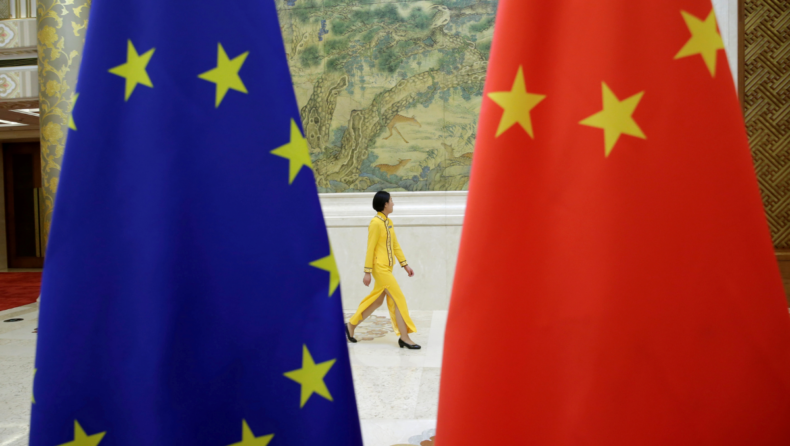A high-level economic and trade dialogue between the European Union and China amid concerns over several problems, including the war in Ukraine, Xinjiang, and an unratified investment pact, took place this Tuesday.
Concerns over a variety of issues, including the Russia-Ukraine crisis, Xinjiang, and an interim investment agreement, prompted the European Union and China to engage in a high-level economic and trade dialogue on Tuesday. Valdis Dombrovskis, executive vice president of the European Union Commission, and Liu He, vice premier of China, co-chaired the virtual conference. Economic representatives from both sides were present at the meeting. The dialogue follows months of unsuccessful attempts to schedule a date for discussions following the tense EU-China summit in April, during which the parties were unable to agree on a joint statement due to disagreements over the Ukraine conflict and human rights concerns.
China pledged to coordinate economic policies with the EU, liberalize trade and investment, and open its financial markets during the ninth EU-China trade and economic dialogue. It remained silent regarding a stalled investment deal.
Human Rights
Human rights, the Ukraine conflict, and geopolitics were disagreements between the two organizations. According to a statement released by the Chinese ministry of commerce, “the two sides will strengthen communication and coordination of macroeconomic policies, increase cooperation in global food and energy security and other areas, and jointly promote global economic and financial stability.”

“The two sides will actively promote trade and investment liberalization and facilitation, increase mutual openness, promote fair competition, protect intellectual property rights, and constantly optimize business,” the Chinese representatives said, omitting any mention of the frozen accord.
Two years ago, Liu and Dombrovskis headed the last round of these negotiations, which focused on a landmark investment pact. After seven years of negotiations, Brussels and Beijing reached an agreement in 2020, but it wasn’t ratified.
What was the frozen (unratified) pact about?
After seven years of marathon negotiations, China and the EU agreed upon a massive trade deal called the Comprehensive Agreement on Investment (CAI). This deal, if ratified, will lead to Beijing relaxing some of its stringent trade rules levied on foreign companies. However, this deal was considered controversial by analysts, and disagreements between the two entities caused it to be frozen.
The reasons why tensions escalated between China and the EU
Western accusations of Islamophobia have been levied against Chinese officials.
In March 2021, Beijing levied sanctions on EU lawmakers, think tanks, and diplomatic entities. This was in response to Western sanctions against Chinese officials suspected of detaining Uyghur Muslims in Xinjiang. Beijing denies guilt.
Due to sanctions and counter-sanctions, the European Parliament stopped ratifying the investment deal in May 2021.
China did not oppose Russia’s invasion of Ukraine as requested by the EU.
Beijing’s failure to oppose Russia’s invasion of Ukraine escalated tensions between the Asian nation and the European Union. In April, EU leaders unsuccessfully urged China not to “turn a blind eye” to what Russia refers to as a “special military operation.”
“We are on The Right Side of History,” says China over The Russia-Ukraine Conflict
Lithuania let Taiwan open a de facto embassy in Vilnius.
Union Then, at the outset of 2022, China suspended imports from European Union member Lithuania. After letting Taiwan open a de facto embassy in Vilnius, this happened. Beijing considers Taiwan its territory.
The Chinese government didn’t mention Lithuania’s move or the Russia-Ukraine conflict in their statement.
China and the European Union’s trade relations have weakened due to differences in opinion and the imposition of sanctions. The two have talked to resolve their differences. The entities hope to unfreeze the mutually beneficial trade agreement, which the EU calls China’s “most ambitious with a third country.”
Virus hit China may miss its 5.5% GDP growth target for FY22













